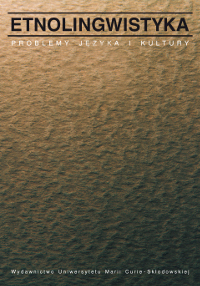Концепты народ, работа и любовь в игровой коммуникации русскоязычных компьютерщиков
The concepts people, work and love in computers games of Russian-speaking programmers
Author(s): Nina Borisovna MečkovskajaSubject(s): Anthropology, Language studies, Language and Literature Studies, Applied Linguistics, Sociolinguistics, Computational linguistics
Published by: Wydawnictwo Naukowe Uniwersytetu Marii Curie-Sklodowskiej
Keywords: concept; nation; work; love; Russian-language computer folklore; Internet folklore
Summary/Abstract: The collective awareness of specialists in information technology (компьютерщики /айтишники), found in the folklore of their professional network, entirely belongs to the sphere of the comic (unlike in ``classical” folklore) and, hence, presents everyday problems through shortcuts, exaggerations and jokes. In Russian-speaking computer folklore, self-identification of programmers is grounded in their trade and language, rather than in ethnicity and citizenship, therefore the concept people is hardly activated; there is no patriotism or xenophobia. Programmers are indifferent to national differences. In their collective awareness, professional skill is the most important value and ethical requirements are reduced to the norms of professional discipline. A programmer views himself as a macho: he is successful both in a trade and with women. In computer folklore, sex is a frequent subject; love is much less frequent, and marriage or family are at the bottom of the list. Male chauvinism is in full swing and is aimed towards female programmers but also average female computer users. Male egoism is so natural and organic to programmers that it is hardly noticed by them.
Journal: Etnolingwistyka. Problemy Języka I Kultury
- Issue Year: 24/2012
- Issue No: 24
- Page Range: 71-94
- Page Count: 24
- Language: Russian

